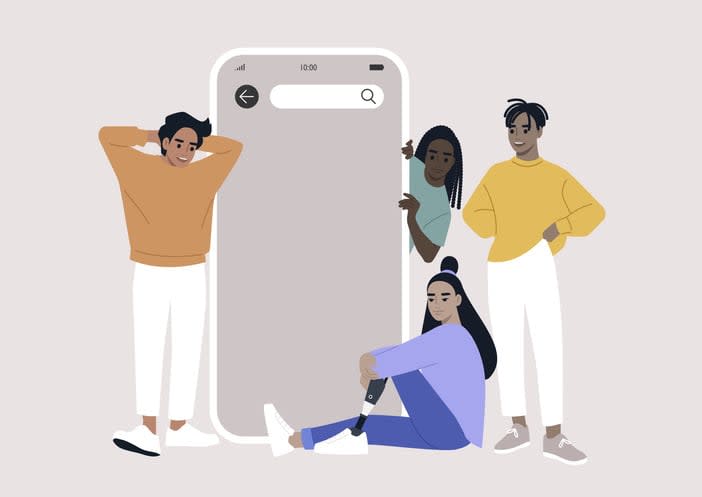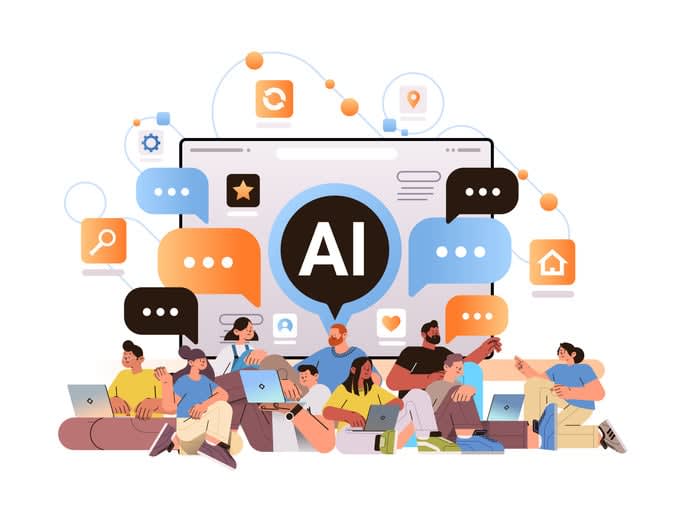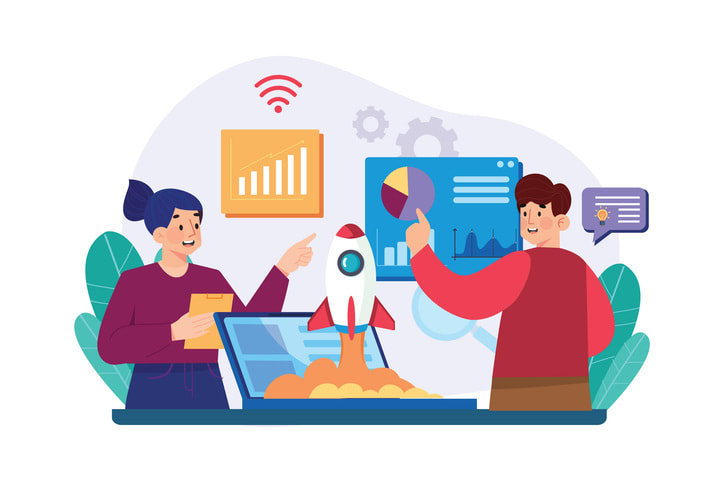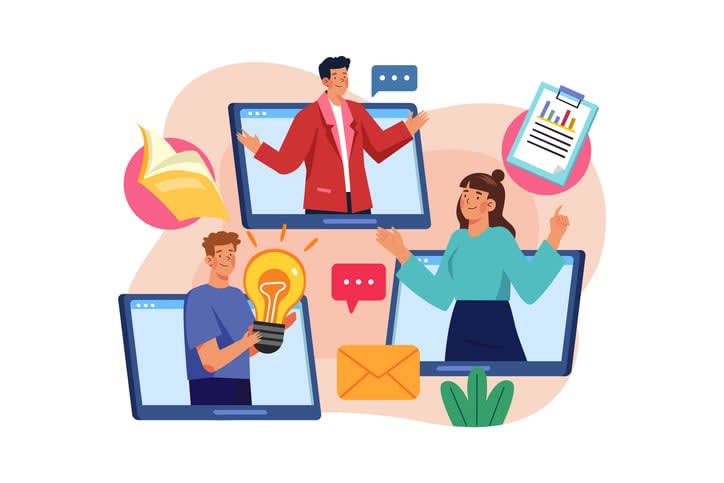If you’re looking to pinpoint the ‘Gen Z age range,’ you’re likely wondering which years define Generation Z. Gen Z includes individuals born between 1997 and 2012, making them 12 to 27 years old as of 2024. But there’s more to this generation than just birth years. We’ll explore their defining characteristics, influence on various business sectors, and how they will shape the future – insights crucial for businesses, educators, and policymakers.
Key takeaways
- Generation Z, generally those born between 1997 and 2012, is the first digital-native generation characterized by its deep integration with technology, the Internet, and social media.
- Gen Z exhibits unique values and behaviors different from previous generations.
- Gen Z’s consumer behaviors are reshaping various industries with their digital-first approach and demand for personalized, ethical, and inclusive brand experiences. They also significantly influence market trends and ethos.
- As Gen Z enters the workforce, they are redefining workplace expectations with a focus on purpose, development opportunities, and inclusive environments, and they will constitute 27% of the workforce by 2025.
Defining Generation Z: age range and birth years

Often referred to as the iGeneration, Post-millennials, Gen Tech, or Zoomers, Generation Z comprises individuals born between 1997 and 2012. They come after Millennials (1981-1996) and will be supplanted by Generation Alpha, representing those born between 2012 and 2024.
As of 2024, this makes them 12 to 27 years old, a demographic of teens, tweens and young adults. Note that there is some overlap in years, depending on the source, but the mid-1990s to mid-2010s is generally accepted as the main Gen Z range.
Generation Z's defining characteristic is its unswerving focus on digital communications. They are the first generation to grow up with the modern internet, gaming, smart, and cloud technology as a daily part of their lives.
Despite being defined by their digital native status, they are not a homogeneous group. Diversity is another Generation Z trait, with varying experiences and perspectives shaped by their unique individual, social, and historical contexts.
Kumospace is a product for the Generation Z workplace, bringing customization, personality and flexibility to the virtual office space. To consider the changing workplace landscape across the generations, many light-hearted TikTok videos highlight each generation’s approach to, and disdain for, Zoom meetings.
Understanding Generation Z is crucial for:
- Businesses
- Marketers
- Educators
- Policymakers
- Society at large
Not only are they the consumers, students, and employees of today, but they are also the leaders and innovators of tomorrow. Their preferences, values, and behaviors are setting the trends and shaping the future, signaling the need for all sectors to adapt and evolve.
Gen Z vs. other generations: the key differences

Generation Z is not merely a younger version of the preceding generations. They are distinct in their values, behaviors, and experiences. From their relationship with technology to their political leanings and lifestyle choices, Gen Z exhibits differences that set them apart from Millennials, Generation X, and Baby Boomers.
Technology adoption and digital natives
Generation Z stands out as the first generation to grow up in a world where the internet, mobile technology, and social media are the norm, not the exception. This generation has witnessed the transition from offline to online, with their lives digitally interconnected. They spend an average of 3 hours daily on mobile devices, demonstrating unprecedented online engagement.
This seamless connectivity enables Gen Z to engage in multiple activities simultaneously, emphasizing content over medium, a trait absent in older generations. Mobile technology has become deeply embedded in Gen Z's daily routine and social lives. It facilitates constant contact with friends and family, normalizing the development of online relationships.
Moreover, the millennial generation, as well as Generation Z, is more comfortable with emerging technologies such as chatbots, emojis, AI, and mixed media, showcasing their adaptability and openness to new technological developments.
One broad example is the 200-million-selling The Sims video game series. Hugely popular among Gen Z, The Sims demonstrates how they expect to see platforms like Kumospace in the workplace. With extensive customization options, Kumospace is more welcoming and engaging compared to sterile business software and even ‘cloud-native’ apps like Slack for productivity.
Values and priorities
Generation Z’s values and priorities are influenced by a world marked by rapid technological advances, economic uncertainty, and significant global challenges. These values and priorities are reflected in their behaviors and decisions, from those living a digital nomad life to people with fast-changing food/dietary choices or political beliefs.
Many members of Generation Z may make food choices based on their environmental concerns, sustainability, and animal welfare. Their decisions are often driven by a desire to support causes that align with their values. They are more likely to opt for plant-based and vegan food choices, indicating a shift towards health-conscious dietary habits. Their engagement with social and environmental matters is amplified by global issues like climate change, which have been attributed to increased levels of anxiety and depression among Gen Z.
Hirers, human resources professionals and team managers who treat these values as ‘fads’ will struggle to understand or get the best from Gen Z as they enter the workplace. With Gen Z comprising around 27% of the workforce by 2025, understanding them is a priority.
Lifestyle choices
Gen Z's lifestyle choices are shaped by their values, preferences, and the environment they have grown up in. These choices offer a glimpse into their world, from their dietary habits to their socialization patterns and mental health.
A significant shift towards health-conscious dietary habits is evident among Gen Z. Some 79% of Generation Z is willing to go meatless one to two times a week, showing a strong interest in plant-based and vegan food choices. However, Gen Z faces challenges such as sleep deprivation, with teenagers in Canada sleeping an average of 6.5 to 7.5 hours each night. This leads to low mood, anxiety, depression, and impaired cognitive functioning.
Social interaction patterns have also evolved among Gen Z. Some key changes include:
- Only 28% of 12th-grade students in 2017 met with their friends almost daily, a stark decline from 52% in 1976.
- Instead, they engage more in solitary activities like streaming video, music, and playing video games.
- Reading habits are declining among Generation Z in the United Kingdom, with increased time spent on video games, YouTube, and texting.
These changes indicate shifting patterns in entertainment and leisure activities among Gen Z.
Moreover, the pandemic’s impact on Gen Z’s lifestyle and social development cannot be overlooked. Remote learning and limited social interactions during the pandemic can potentially exacerbate disparities among socioeconomic groups. Gen Z’s preference for work-life balance and flexibility in the workplace signifies a shift in career and work values.
The influence of world events on Gen Z

Major world events have had a profound influence on Generation Z, shaping their perspectives, values, and behaviors. These events have left an indelible imprint on their collective consciousness, influencing their developmental years and beyond.
The COVID-19 pandemic is one such significant event that has defined Generation Z. The pandemic has disrupted their education, social life, and mental health, leaving a lasting impact. The OECD’s PISA tests conducted in 2022 demonstrated a noticeable downturn in academic performance globally, highlighting the disruption of education systems.
Despite the challenges, Generation Z’s resilience has shone through, preparing them for the future of work, even amid global and local political crises. Their active involvement in political movements, like the School Strike for Climate, underscores their commitment to making a difference and reflects their propensity for activism.
Gen Z consumer behavior and preferences

As consumers, Generation Z is reshaping the marketplace with their unique behavior and preferences. Their digital-first interactions, the influence of social media, and a strong expectation for personalized and inclusive shopping experiences are transforming how businesses connect, engage, and serve them.
Social media usage and impact
Social media plays an integral role in Generation Z's lives. This platform is where they share their thoughts and seek recommendations while staying informed about current events. It serves as their primary outlet for these activities. As such, social media platforms significantly impact Gen Z’s communication, identity creation, and purchasing decisions.
Instagram and TikTok are particularly popular among Gen Z. Instagram is their primary platform for Stories and direct messaging, while TikTok is their preferred platform for short-form video content. The choice of these platforms underscores Gen Z’s preference for speed and reliability in their social networking platforms.
The prevalent use of apps like Vine and Bunch, using emojis, short video clips and so on, illustrates the importance of speed and convenience in Gen Z’s digital interactions. In terms of marketing tactics, social media advertising, both paid and organic, is a more impactful method for reaching Gen Z customers.
Brand loyalty and authenticity
Generation Z’s interaction with brands is shaped by their values and expectations. They prioritize authenticity in brands, rejecting marketing that they perceive as fake. They favor personalized marketing and inclusive experiences that reflect their values, such as diversity and support for social causes.
Brand loyalty among Gen Z is strongly tied to environmental and social responsibility. They prefer sustainable and conscientiously developed products, highlighting the growing importance of ethical practices in business. Brands that fail to exhibit a genuine commitment to sustainability, diversity, and inclusion may find it challenging to win over Gen Z consumers.
Purchase decisions and influences
Regarding purchasing decisions, Generation Z is influenced by a range of factors. From customer experience and support quality to data privacy, these factors shape their buying behavior and preferences.
A positive customer experience makes Gen Z more likely to repeat purchases, increasing brand retention and sales. They also believe that a personalized customer experience isn’t exclusive to premium brands and expect such experiences across various price points.
Furthermore, robust data privacy practices and customer transparency are crucial for businesses to gain the trust of Gen Z buyers.
How Gen Z is transforming industries

Generation Z’s unique behaviors, preferences, and values are transforming various industries. From banking and financial services to retail and entertainment, Gen Z is driving innovation, digital optimization, and personalized experiences.
Banking and financial services
In the banking and financial services sector, Gen Z’s digital preferences and early investment habits shape the industry’s offerings and customer experiences. Gen Z starts investing earlier than previous generations, with many beginning to invest by the age of 21 in a diverse range of traditional and virtual asset classes. Despite their technological savviness, Gen Z values data security offered by conventional banks more than big tech companies and nearly half find physical bank branches important.
To engage Gen Z, banks need to offer a combination of advanced digital experiences and the option for in-person services. Gen Z expects banks to assist with financial management, and it is predicted that 97% of Gen Z will be mobile banking users by 2027.
Retail and ecommerce
The retail and ecommerce sectors are also undergoing changes to cater to Gen Z’s demands. Gen Z consumers expect instant access to products and services, appreciating features like one-click purchasing and same-day delivery. To meet these expectations, retailers enhance their digital experiences and create community ties for transparent engagement.
The demand for self-expression and individuality among Gen Z is leading to greater product customization and inclusivity in markets like beauty and personal care. Furthermore, Gen Z’s desire for innovation in their shopping experiences drives marketers to adopt new trends such as live stream content.
Entertainment and streaming services
Generation Z is also reshaping the entertainment and streaming services industry. Their preferences for interactive and on-demand content are driving changes in the industry’s content creation and delivery approaches.
Streaming services focus on interactive and on-demand content to cater to Gen Z’s preferences. As the lines between entertainment, social interaction, and self-expression blur for Gen Z, these services are redefining their offerings. Moreover, the need for speed, convenience, and personalization in content consumption is driving platforms to explore innovative solutions, all to capture the attention of this digitally savvy generation.
Gen Z's role in shaping the future of work

Generation Z’s entrance into the workforce is ushering in changes in workplace culture, values, and structures. From their career aspirations to their expectations from employers, Gen Z is redefining the future of work. Gen Z workers seek purposeful employee experiences, development, and career opportunities from employers, valuing job security and high salary over gig work flexibility. However, they have faced increased economic uncertainty due to the pandemic, with varying unemployment rates across regions. It’s also noteworthy that Gen Z employees may change jobs up to 10 times between the ages of 18 and 34, influencing their significant buying decisions and life milestones.
With Generation Z projected to make up 27% of the workforce by 2025, employers must adapt by fostering personal development, providing opportunities for skills expansion, and creating inclusive environments where multiple generations are valued.
Preparing for Generation Alpha

As we delve deeper into Generation Z's world, it’s essential to look ahead to Generation Alpha, the children born between 2012 and 2026. This generation will be even more immersed in technology and witness significant world events shaping its development.
Generation Alpha’s formative years at a young age are being influenced by various factors, just like those of any other generation of the same age. These factors include:
- the ubiquitous presence of smart devices in their homes
- the global pandemic
- social justice movements
- significant political events
In this context, Gen Z, the preceding generation, plays a guiding role, perceived as the ‘cool older sibling’ to Generation Alpha, suggesting a guiding role in the developmental journey of their successors from the same generation.
Summary
In this concluding section, we will summarize the key points discussed in the article, emphasizing Generation Z's unique characteristics, influence on various sectors, and role in shaping the future. Understanding Generation Z is key to building cross-generational teams in all types of business, and incorporating their ideas in the future of work.
Frequently Asked Questions
Generation Z is the incoming workforce generation, whose values and demands will need to be met by businesses.
Generation Z has grown up among the turmoil of COVID, and political upheaval in traditionally stable democracies. They are digitally connected to form and share opinions faster than ever. Those on the wrong side of Gen Z will find themselves losing support and business fast
Kumospace provides Generation Z workers a familiar virtual office landscape to operate and socialize in. Through its engaging virtual platform and interactive features that encourage collaboration and create a positive work environment, Gen Z will feel at home and find engaging with workers from previous generations easier.
Gen Z workers can provide fresh perspectives across the business and new ideas for innovation. They bring their own digital and technological expertise while offering a spirit of greater diversity and resilience to problem-solving.
Gen Z will expect hybrid or remote working to enable them to maximize their time, cloud services that are accessible anywhere, and strong ethical practices from the business leadership down.





